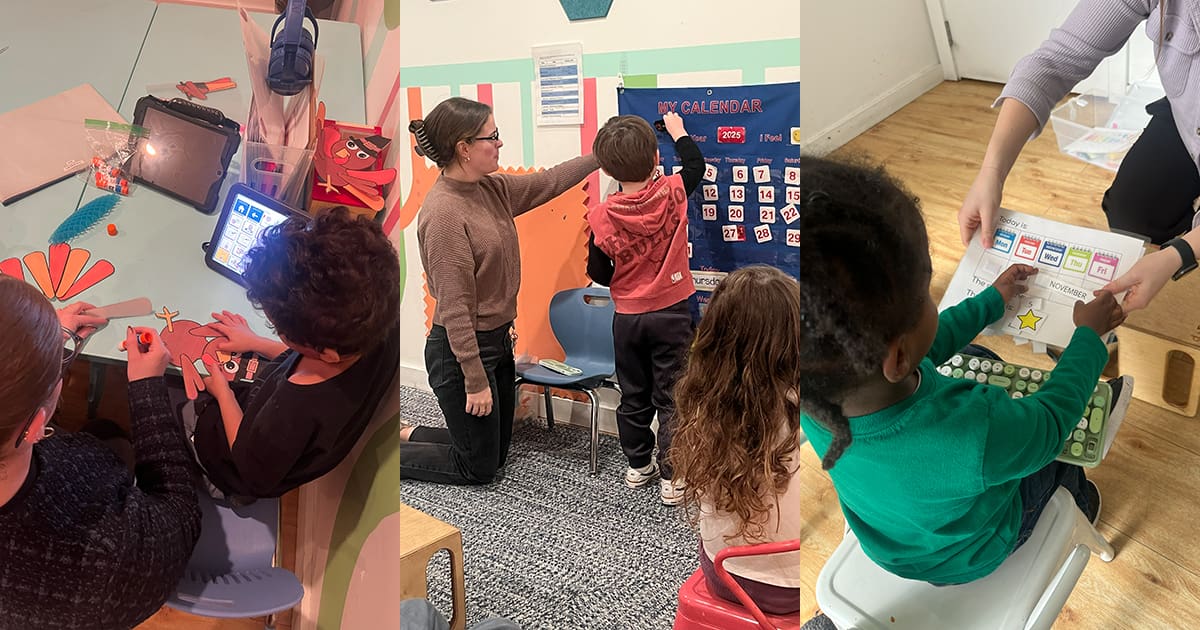Share this Post

When searching for therapy services for your child, you may come across different professionals in the field of Applied Behavior Analysis (ABA), including Board Certified Behavior Analysts (BCBAs) and Registered Behavior Technicians (RBTs). While both play a role in supporting children’s developmental progress, their qualifications, responsibilities, and level of expertise differ significantly.
At CST Academy, we ensure that BCBAs serve as the primary providers of therapy and care for children. By placing BCBAs in a leadership role, we maintain the highest level of clinical oversight and ensure that every therapy session is evidence-based, individualized, and aligned with each child’s unique needs.
What is a BCBA?
A BCBA is a highly trained professional with a master’s or doctoral degree in behavior analysis, education, psychology, or a related field. BCBAs are responsible for designing and overseeing therapy programs, ensuring that interventions are research-based and effective for each child.
Key Responsibilities of a BCBA at CST Academy
- Conducting comprehensive assessments to evaluate a child’s strengths, challenges, and developmental progress
- Developing individualized treatment plans tailored to each child’s needs
- Overseeing all therapy sessions and ensuring that interventions are effective
- Providing direct therapy when necessary to ensure high-quality care
- Training and supervising RBTs to maintain consistency and excellence in therapy implementation
- Collaborating with families, caregivers, and other therapists to create a well-rounded support system
- Monitoring progress and making adjustments to treatment plans as needed
BCBAs play a critical role in creating and leading therapy programs, ensuring that every child receives personalized, high-quality care.
What is an RBT?
An RBT is a paraprofessional in the field of ABA who works under the supervision of a BCBA. Unlike BCBAs, RBTs do not create or modify treatment plans; instead, they implement therapy strategies designed by a BCBA.
RBTs complete specialized training and must pass a certification exam to demonstrate their ability to deliver ABA therapy techniques. However, they do not have the advanced education or clinical expertise of a BCBA.
Key Responsibilities of an RBT
- Implementing therapy sessions as directed by the BCBA
- Collecting data on a child’s progress and reporting findings to the supervising BCBA
- Assisting children in developing communication, social, and behavioral skills
- Providing direct one-on-one support to help children meet their therapy goals
- Following structured behavior intervention plans with close supervision
RBTs play a valuable role in delivering therapy, but they do not independently design or adjust treatment plans. Their work is guided and supervised by BCBAs to ensure effectiveness and consistency in therapy.
Why CST Academy Relies on BCBAs as Primary Therapy Providers
While both BCBAs and RBTs contribute to therapy, the key difference lies in their level of education, expertise, and ability to oversee treatment. A BCBA has the advanced training necessary to develop, monitor, and adjust therapy plans, while an RBT focuses on implementing these plans under supervision.
At CST Academy, BCBAs are the primary therapy providers because they have the highest level of training and clinical knowledge. This approach allows us to:
- Ensure quality and consistency – Every therapy session follows a research-based plan designed by a BCBA.
- Provide individualized care – BCBAs create personalized strategies tailored to each child’s unique needs.
- Monitor progress and make adjustments – If therapy needs to be modified, a BCBA makes the necessary changes to ensure continued success.
- Support families with expert guidance – BCBAs work closely with parents to provide recommendations and resources for at-home reinforcement.
By ensuring that BCBAs lead all therapy efforts, CST Academy maintains the highest standard of care for every child we serve.
How CST Academy Ensures the Best Therapy for Your Child
We understand that early intervention and high-quality therapy can make a profound difference in a child’s development. That’s why CST Academy prioritizes BCBAs as the primary therapy providers, ensuring that every treatment plan is:
- Developed by highly trained experts – BCBAs have advanced education and experience in ABA therapy.
- Customized to each child’s needs – Every plan is tailored to address specific challenges and strengths.
- Backed by research – Therapy strategies are based on evidence-based practices proven to be effective.
- Monitored for ongoing success – BCBAs regularly assess progress and make adjustments as needed.
By using BCBAs as the primary source of therapy and care, we ensure that children receive the highest quality support and the best opportunity for success.
Choosing the Right Therapy Team for Your Child
Selecting the right therapy provider is one of the most important decisions a parent can make. At CST Academy, our BCBA-led approach guarantees that children receive the highest level of expertise, compassionate care, and individualized treatment to support their development.
If you’re looking for a trusted therapy provider that prioritizes clinical excellence and personalized care, contact CST Academy today. Our team is ready to help guide you through the process and provide the best support for your child’s needs.
Discover Our Pediatric Therapy & Autism Care
ABA Therapy
Support for children with autism.
Autism Evaluation
Expert assessments to identify child needs.
Pediatric Therapy Services
Speech, Occupational, Feeding, and Physical Therapy.
Therapeutic Preschool
A classroom environment designed for early learners with unique needs.

Find the Best Care for Your Child




